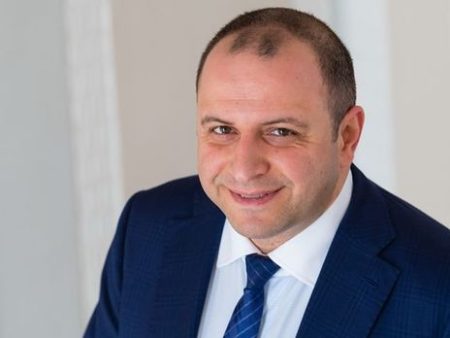In Tyumen, the local department of the Investigative Committee of Russia (TFR) filed a new charge in absentia against Gennady Lisovichenko, the former general director of the Antipinsky Oil Refinery (OR), who was recently detained in Italy at the request of the Prosecutor General’s Office of the Russian Federation.
Besides the charge of abuse of authority in an unprofitable deal for the company, Mr. Lisovichenko is now accused of attempting a large-scale fraud. According to investigators, in 2018, before being dismissed, the director improperly granted himself a $10 million bonus for outstanding performance. The defense believes the new charge was brought in order to increase the volume of claims against Mr. Lisovichenko, with hopes of his quick extradition to Russia. Meanwhile, the businessman asked the Italian authorities for political asylum at the city of Bari court.
Gennady Lisovichenko, who managed Antipinsky Oil Refinery JSC for 14 years, was charged under Art. 30 and part 4 of Art. 159 of the Criminal Code of the Russian Federation for attempted large-scale fraud by the investigative department of the TFR in the Tyumen region at the end of January. The Leninsky District Court of Tyumen recently granted the investigation's petition for the arrest in absentia of Mr. Lisovichenko. The defendant’s defense objected, stating that there were no convincing grounds for such a severe measure of restraint, but the petition was granted nonetheless. It is worth noting that Mr. Lisovichenko had previously been arrested in absentia on the abuse of power charge.
The decision to charge the former general director of the refinery, Gennady Lisovichenko, with making a false protocol of a board of directors meeting to establish a $10 million bonus for himself in 2018, just before his dismissal, was made with the intention of stealing money from the plant.
Additionally, the investigation states that Mr. Lisovichenko issued an order to reward himself in connection with achieving production targets.
Ruslan Elkanov, the lawyer of Mr. Lisovichenko, informed Kommersant that the reason for opening a new criminal case was the statements of representatives of the current management of the refinery, as well as the testimony of employees. The defender has yet to comment on the specifics of the case, as they still need to be clarified, and does not fully agree with the claims previously made against Mr. Lisovichenko.
In the first situation, the former CEO is accused of using his power to sell the railway access track of the Antipinsky Oil Refinery for 20 million rubles. The investigation claims the track was valued at 35.2 million rubles and that this caused damage to the enterprise. The CEO sold the track to a company he created at the refinery, intending to create a railway operator to save money for the refinery. After the sale, a lease agreement was made, but the lawyer argues that it did not hinder product transportation. The lawyer also mentioned that the bankruptcy trustee later valued the track at 16 million rubles. He questions the alleged abuse and the damage caused by the sale.
It's important to mention that Mr. Lisovichenko's criminal case is not only about the 'Tyumen' incidents.
In 2019, the Russian Ministry of Internal Affairs opened a case against Dmitry Mazurov, the founder of the Novy Potok group of companies, for large-scale fraud, which included embezzlement and withdrawal of company funds. Gennady Lisovichenko is implicated in one of the episodes. He was later arrested in absentia by a Moscow court at the request of the Investigation Department of the Ministry of Internal Affairs.
Currently, Mr. Lisovichenko is held in a prison in Lecce, Italy after being detained on January 20th in Bari. He was wanted by Interpol at the request of the Russian Prosecutor General’s Office. The local court ordered his detention while he appealed for political asylum, claiming that the case against him in Russia was fabricated to seize the plant and that he would face inhuman conditions in detention. His Italian lawyers managed to prevent his extradition until the case is fully resolved.




